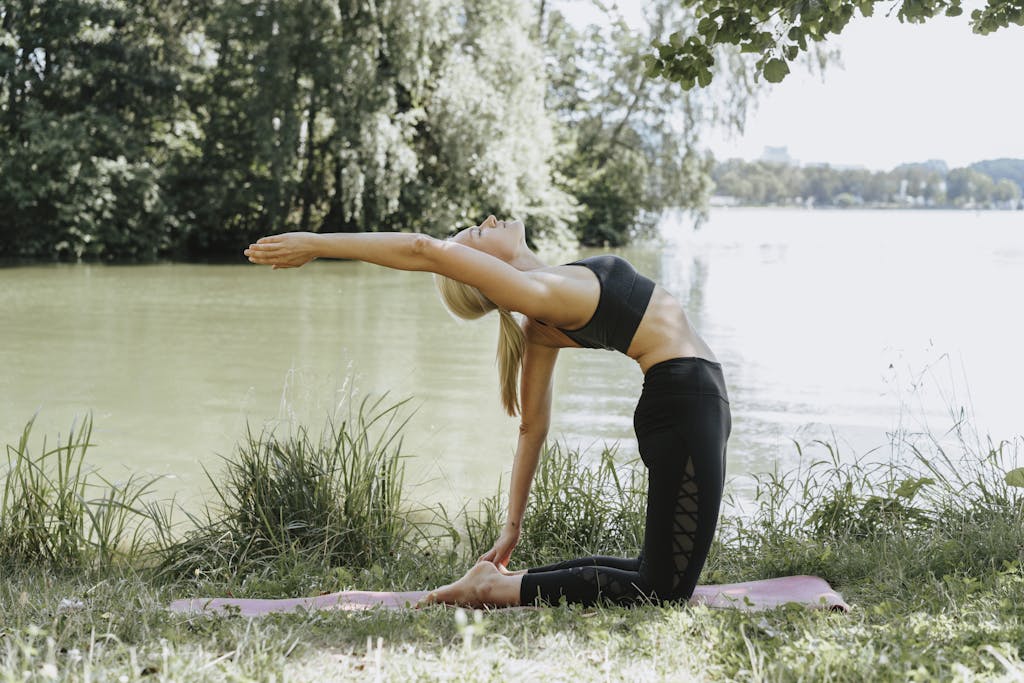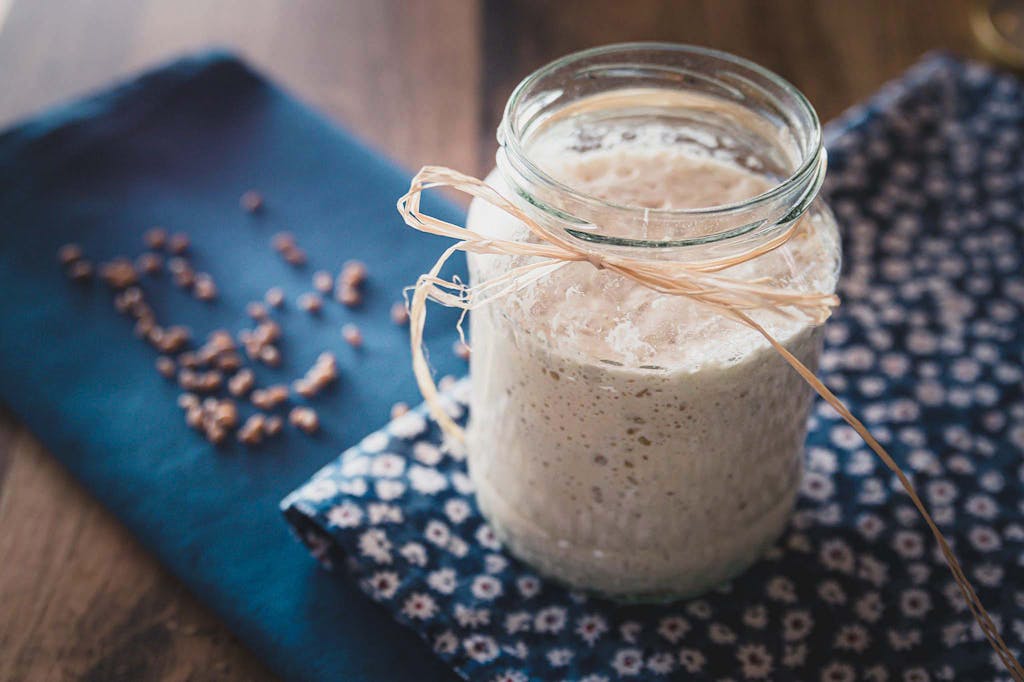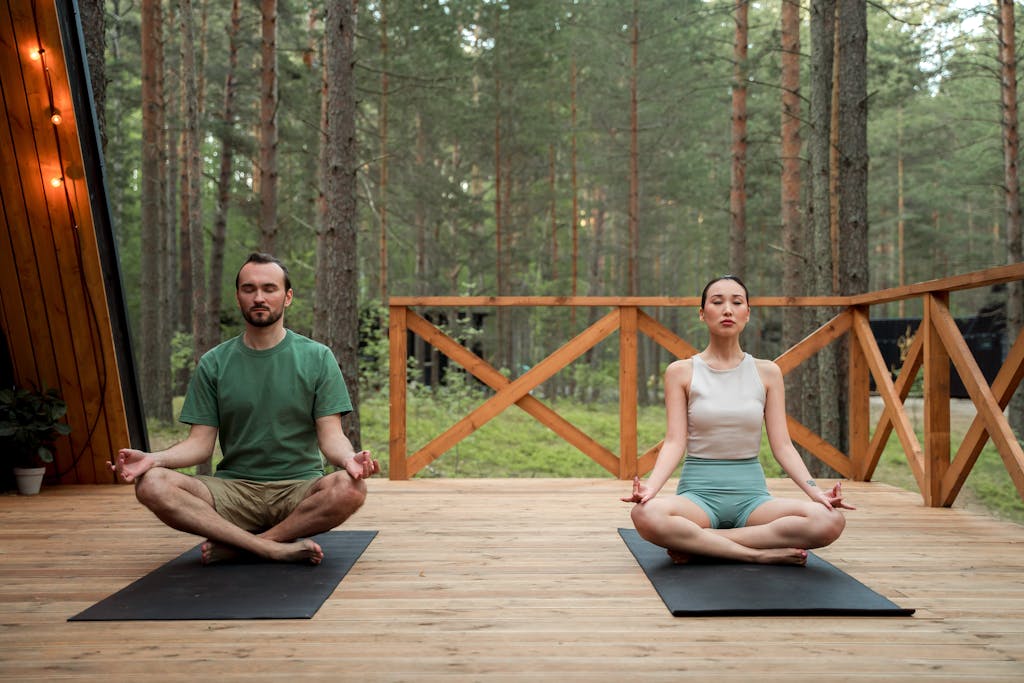Are you ready to elevate your mental clarity and well-being? Biohacking offers simple, effective strategies to optimize cognitive function and brain health. From intermittent fasting to mindfulness, discover these six powerful biohacks for mindfulness designed to help you achieve optimal mental clarity and stress relief.
What is Biohacking?
Biohacking is the art and science of enhancing your physical and mental performance by making small adjustments to your biology and environment. Whether you’re aiming for optimal health, boosting your cognitive function, or improving brain health, biohacking offers personalized techniques for better overall well-being. The term “biohacking” was popularized by Dave Asprey, who leveraged these principles to optimize his body and mind.
A Brief History of Biohacking
Biohacking began as a DIY approach to health, allowing individuals to take control of their biology through science-based interventions. Dave Asprey, who famously struggled with brain fog and chronic fatigue, used biohacking to radically transform his health and mental performance. Today, biohacking has evolved into a movement, with individuals striving for greater mental clarity and physical performance through nutrition, sleep optimization, and cutting-edge technology.

The Benefits of Biohacking for Cognitive Function
Biohacking is known for improving cognitive function, enhancing mental clarity, and supporting brain health. These practices can boost your focus, memory, and emotional well-being. By integrating sleep patterns, mindfulness, and nutrition into your daily routine, you can experience improved overall well-being and optimal health.
Enhanced Mental Acuity and Focus
Biohacks like meditation and brain-training exercises are excellent ways to elevate mental clarity and improve mental performance. Supplements like omega-3s and nootropics are powerful tools for boosting cognitive function, while intermittent fasting can support metabolic health, enhancing both physical and mental performance.

Top 6 Biohacks for Mindfulness
To improve your mental clarity and support brain health, here are the six top biohacks that you can easily incorporate into your routine:
1. Meditation
Meditation has been used for centuries as a powerful tool to cultivate mental well-being and promote cognitive function. Whether you choose to engage in mindfulness meditation or prefer guided sessions through apps like Headspace or Calm, the practice offers numerous benefits for the mind and body. By integrating meditation into your daily routine, you can experience significant improvements in mental clarity, emotional regulation, and stress reduction.
Enhancing Cognitive Function and Mental Clarity
Meditation is a proven way to boost cognitive function, helping you think more clearly and process information efficiently. Studies have shown that regular meditation can enhance focus, attention span, and mental performance by rewiring the brain through a process known as neuroplasticity. This essentially means that meditation helps your brain create new pathways, making it more adaptable and improving brain health.
By engaging in just 10-20 minutes of mindfulness meditation each day, you give your mind the chance to declutter and reset. This leads to greater mental clarity, allowing you to approach tasks with a clear and focused mind. Whether you’re working, studying, or handling personal challenges, this heightened sense of clarity can improve your overall brain function and mental agility.

Reducing Stress and Improving Overall Health
One of the most powerful benefits of meditation is its ability to reduce stress. Stress is a significant factor that can negatively affect overall health, leading to issues such as poor sleep patterns, weakened immune system, and even chronic conditions like high blood pressure. Meditation works by activating the body’s parasympathetic nervous system, which induces a state of relaxation, reducing levels of the stress hormone cortisol.
When practiced consistently, meditation helps regulate emotional responses, making it easier to manage daily stressors. This reduction in stress not only improves mental health but also has far-reaching benefits for your overall well-being. Many people notice improvements in their physical and mental performance, feeling more energetic and resilient after incorporating meditation into their daily routine.
How to Get Started with Meditation
If you’re new to meditation, you don’t need to jump straight into long sessions. Start small, with just 10 minutes of mindfulness practice each day. Find a quiet space, sit comfortably, and focus on your breath. As thoughts arise, gently acknowledge them without judgment, and return your attention to your breathing. Over time, you’ll find it easier to stay present, and the practice will become a calming ritual in your daily life.
There are also many resources available to support you in your meditation journey. Apps like Calm, Insight Timer, or Headspace offer guided sessions tailored to different goals, such as stress reduction, improving mental clarity, or enhancing cognitive function. By setting aside time each day for meditation, you’ll notice profound changes in your mental well-being, brain health, and emotional resilience.
In summary, meditation is a foundational biohack that not only enhances mental clarity and cognitive function but also provides significant benefits for managing stress and improving overall health. Whether you’re looking to reduce anxiety, sharpen your focus, or simply bring more peace into your day-to-day life, meditation is an accessible and effective tool for achieving those goals.

2. Cold Exposure
Cold exposure is a biohacking technique that has gained widespread popularity due to its profound impact on both the mind and body. While it may seem daunting at first, incorporating cold exposure, such as cold showers or ice baths, into your daily routine can yield impressive benefits. The practice leverages the body’s natural response to extreme temperatures to strengthen your mental resilience, enhance cognitive function, and support overall immune systemhealth.
How Cold Exposure Works
When the body is exposed to cold temperatures, it triggers a variety of physiological responses that can help boost both physical and mental performance. The sudden drop in temperature activates the sympathetic nervous system, causing the release of norepinephrine—a hormone and neurotransmitter responsible for increasing alertness, focus, and attention. This surge in norepinephrine not only sharpens cognitive function, but it also elevates energy levels and improves mental clarity.
Cold exposure has also been shown to stimulate the production of brain-derived neurotrophic factor (BDNF), a protein that supports the growth, survival, and differentiation of neurons. Higher levels of BDNF are linked to improved brain health, as they promote neuroplasticity—the brain’s ability to adapt to new information and environments. This makes cold exposure an excellent tool for optimizing mental performance, as it enhances both focus and learning ability.

Cold Exposure and Stress Resilience
One of the most notable effects of cold exposure is its ability to increase mental resilience. When you immerse yourself in cold water or take a cold shower, your body is put under stress. Over time, this helps train your mind and body to better handle stressors, both physical and mental. By repeatedly exposing yourself to uncomfortable, yet controlled, situations, you build stress resilience, which carries over into other aspects of life, making it easier to remain calm and composed in high-pressure situations.
Cold Exposure for Immune System Health and Inflammation Reduction
Cold exposure doesn’t just benefit the mind—it’s also an excellent practice for promoting immune system health. Regular cold exposure can increase the production of white blood cells, which are crucial for fighting off infections and supporting the body’s immune response. Studies have shown that people who regularly incorporate cold showers or ice baths into their routines have stronger immune systems and are less likely to catch colds or the flu.
Moreover, cold exposure is highly effective in reducing inflammation throughout the body. By constricting blood vessels and lowering skin temperature, cold therapy helps to reduce swelling and discomfort caused by inflammation. This is particularly beneficial for brain health, as chronic inflammation can lead to cognitive decline over time. Reduced inflammation not only improves cognitive function, but it also accelerates muscle recovery and enhances physical performance.

Practical Ways to Incorporate Cold Exposure Into Your Routine
For those new to cold exposure, starting with cold showers is a practical and accessible option. Gradually lowering the water temperature towards the end of your regular shower can ease you into the practice. Start with 30 seconds to one minute of cold water and slowly increase the duration as your body adapts to the cold. For a more intense experience, ice baths or cold-water plunges can be used for recovery after physical exercise or as part of a stress management routine.
Here are some methods to begin incorporating cold exposure:
- Cold showers: Start by finishing your warm shower with 30 seconds to 1 minute of cold water. Gradually work your way up to longer durations.
- Ice baths: Submerge yourself in cold water with ice for 3-5 minutes, focusing on deep breathing to stay calm and relaxed.
- Cold water plunges: If you have access to a cold lake or pool, taking a quick dip in natural cold water is another great way to experience the benefits.
These methods can help you reap the full benefits of cold exposure, including enhanced energy levels, focus, and cognitive function, as well as improved stress resilience. While the initial discomfort may take some getting used to, the long-term benefits make cold exposure a biohacking tool worth trying.

3. Optimizing Sleep Patterns
Your sleep patterns have a significant impact on your mental clarity and overall health. Optimizing your sleep with a consistent sleep schedule and sleep tracking devices like the Oura Ring can help improve sleep quality and cognitive function. Key strategies include:
- Setting a consistent sleep schedule to enhance restorative sleep
- Using sleep-promoting supplements like melatonin to support deep sleep
- Creating a sleep sanctuary that blocks out blue light and noise, improving circadian rhythm and sleep quality
Prioritizing good sleep hygiene is essential for better cognitive function and mental clarity.
4. Grounding for Mindfulness
Grounding, also known as earthing, is a powerful biohacking technique that connects you with the Earth’s natural energy, promoting a sense of calm and enhancing mindfulness. This practice involves making direct contact with the ground, whether through walking barefoot on grass, dirt, or sand, or using grounding mats and sheets that simulate this connection indoors. Grounding can have significant benefits for mental well-being, stress relief, and overall health.
How Grounding Works
Grounding works by allowing your body to absorb electrons from the Earth’s surface, which helps neutralize free radicals—unstable molecules that can contribute to inflammation and stress in the body. This connection can lead to a range of physiological and psychological benefits:
- Reduction in Stress: Grounding helps lower cortisol levels, the stress hormone, promoting a sense of relaxation and well-being. By reconnecting with nature, you can alleviate feelings of anxiety and tension, making it easier to stay present in the moment.
- Enhanced Mood and Mental Clarity: Spending time in a natural setting while grounding can improve your mood and cognitive function. This is partly due to increased blood flow and oxygenation to the brain, which enhances mental clarity and focus. The calming effects of grounding can help you declutter your mind and improve emotional regulation.
- Improved Sleep Quality: Grounding can also contribute to better sleep quality by promoting a consistent sleep schedule. The natural rhythms of the Earth can help reset your circadian rhythm, making it easier to fall asleep and stay asleep. As a result, you’ll wake up feeling more rested and energized.

Practical Ways to Incorporate Grounding into Your Routine
Incorporating grounding into your daily life is easy and can be done in several ways. Here are some effective methods to help you start:
- Barefoot Walking: Take off your shoes and walk barefoot on natural surfaces like grass, sand, or soil. Aim for at least 20 to 30 minutes a day to reap the maximum benefits. Feel the texture of the ground beneath your feet and focus on how it feels, allowing yourself to become fully present in the moment.
- Grounding Mats and Sheets: If you can’t access natural surfaces easily, consider using grounding mats or sheets. These products are designed to connect you to the Earth’s energy while you sit, sleep, or work. They can be particularly useful for those living in urban environments where direct access to nature is limited.
- Outdoor Meditation: Combine grounding with your mindfulness practice by meditating outdoors. Find a quiet spot in a park or your backyard, sit or lie down on the grass, and focus on your breath and surroundings. Feel the Earth beneath you, listen to the sounds of nature, and allow yourself to relax into the moment.
- Nature Immersion: Spend time in nature, whether through hiking, picnicking, or simply sitting outside. Engage your senses by noticing the colors, sounds, and scents around you. Allow the experience to ground you and enhance your mindfulness.
- Gardening: Digging your hands into the soil is another excellent way to connect with the Earth. Gardening not only helps ground you but also promotes a sense of accomplishment and reduces stress.

Benefits of Grounding for Mindfulness
Incorporating grounding into your routine can significantly enhance your mindfulness practice and overall well-being. Here are some specific benefits:
- Enhanced Emotional Regulation: Grounding helps you feel more centered and balanced, allowing you to respond to stressors with greater calm and clarity.
- Increased Self-Awareness: By connecting with the Earth, you become more attuned to your thoughts and emotions, fostering greater self-awareness and personal growth.
- Promotion of Relaxation: The calming effects of grounding can reduce feelings of anxiety and overwhelm, making it easier to practice mindfulness and remain present.
- Stronger Connection to Nature: Grounding fosters a deeper appreciation for the natural world, promoting a sense of belonging and interconnectedness.
In conclusion, grounding is a simple yet effective biohack that can elevate your mindfulness practice and enhance your overall well-being. By reconnecting with the Earth, you can reduce stress, improve mental clarity, and promote a greater sense of balance and peace in your life. Whether you walk barefoot outside or use grounding products indoors, the benefits of this practice can lead to profound improvements in your mental and emotional health.

5. Neurofeedback and Brain Stimulation
Neurofeedback is a modern biohack that directly improves brain function. By using technology to monitor and enhance your brain’s electrical activity, neurofeedback can boost mental clarity and improve focus. Benefits include:
- Enhanced cognitive function and mental resilience
- Brain health improvements through targeted stimulation of neural circuits
- Support for reducing stress and improving sleep patterns
Incorporating neurofeedback or brain-stimulation devices can optimize both mental clarity and overall well-being.
6.Personalized Nutrition and Supplements for Optimal Brain Function
Nutrition plays a pivotal role in brain health, directly influencing cognitive performance, emotional well-being, and overall vitality. By utilizing biohacking techniques such as nutrigenomics and personalized supplements, you can tailor your dietary choices to optimize nutrient intake and enhance brain function. Here’s a comprehensive guide on how to leverage personalized nutrition and supplements for improved cognitive performance.
The Connection Between Nutrition and Brain Health
What you eat profoundly affects your brain’s structure and function. Nutrients provide the building blocks for neurotransmitters and hormones that regulate mood, cognition, and overall brain activity. Poor nutrition can lead to deficiencies that may impair cognitive functions, mood stability, and overall mental health.

Key Strategies for Personalized Nutrition
- Genetic Testing for Nutritional Insight:
- Understanding Nutrient Deficiencies: Genetic tests can provide insights into how your body processes certain nutrients. For instance, some individuals may have genetic variants that affect their ability to absorb vitamins or metabolize fats effectively.
- Tailored Recommendations: Based on your genetic makeup, you can identify specific nutrient deficiencies (such as vitamin D, B vitamins, or omega-3 fatty acids) and modify your diet or supplementation accordingly. This personalized approach helps ensure that you’re consuming what your body truly needs for optimal functioning.

- Incorporating Omega-3 Fatty Acids:
- Benefits for Cognitive Function: Omega-3s, particularly EPA and DHA, are essential for brain health. They are vital components of cell membranes and play a crucial role in maintaining neuronal structure and function.
- Sources of Omega-3s: To boost your omega-3 intake, consider incorporating fatty fish (like salmon, mackerel, and sardines) into your diet, or explore high-quality omega-3 supplements derived from fish oil or algae.
- Impact on Mood and Cognition: Research suggests that adequate omega-3 levels can reduce symptoms of depression and anxiety, enhance memory, and improve overall cognitive function.

- Combining Nutrition with Targeted Supplements:
- Personalized Supplement Regimen: By assessing your individual nutritional needs through genetic testing and lifestyle evaluation, you can create a targeted supplement regimen that complements your diet. This can include vitamins, minerals, omega-3s, probiotics, and nootropics tailored to your unique requirements.
- Monitoring and Adjusting: It’s essential to monitor how your body responds to these changes. Keeping a journal of your mental clarity, focus, and overall mood can help you assess the effectiveness of your personalized nutrition and supplement strategies.

The Benefits of Personalized Nutrition and Supplements
By combining personalized nutrition with targeted supplements, you can experience a range of benefits for cognitive function and overall health, including:
- Sharper Focus: Tailoring your diet and supplementation to your unique needs can lead to improved concentration and mental clarity, enabling you to perform tasks more efficiently.
- Enhanced Mental Clarity: A well-nourished brain is better equipped to process information, think critically, and make informed decisions.
- Improved Brain Function: Optimizing your nutrient intake supports overall brain health, enhancing memory retention and cognitive agility.

Conclusion
Personalized nutrition and supplements offer a powerful biohacking approach to enhance brain function and overall well-being. By understanding your unique nutritional needs through genetic testing, incorporating brain-supporting nutrients like omega-3s and nootropics, and prioritizing gut health with probiotics, you can optimize your dietary choices for maximum cognitive performance. Remember that combining these strategies with a balanced diet and healthy lifestyle will help you unlock your brain’s full potential, allowing you to thrive both mentally and physically. Embrace the power of personalized nutrition and supplements to elevate your cognitive function and enhance your quality of life.

Incorporating Biohacking into Your Daily Routine
Biohacking for mental clarity isn’t complicated. By making small, intentional changes—like practicing meditation, optimizing your sleep patterns, and taking personalized supplements—you can experience significant improvements in your mental performance and well-being. These biohacks are designed to help you take control of your mind and body, allowing you to perform at your best.
Conclusion
Biohacking offers practical, scientifically-backed strategies to boost your mental clarity and brain health. Whether through mindfulness, cold exposure, or intermittent fasting, these biohacks can help you achieve greater mental resilience and emotional well-being. Incorporate these powerful techniques into your routine to optimize your overall health and unlock your full potential.





